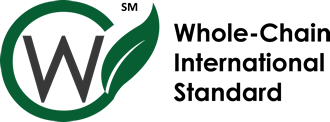
Author: Dr. Juan-Marcelo Gómez
The integrity of food supply chains is a critical concern for both consumers and enterprises. The escalation of food fraud, particularly in the form of adulteration and misrepresentation, poses economic risks and undermines consumer confidence. It is essential to maintain trust and protect public health by ensuring the integrity of the supply chain, particularly in terms of authenticity and provenance. This article delineates the rationale behind the implementation of a comprehensive supply chain integrity system and delineates the steps required to integrate business processes, people, information data, and culinary products to ensure authenticity and traceability.
The Importance of Supply Chain Integrity
Food fraud incidents, such as the 2013 horse meat scandal, have exposed deficiencies in the current systems of food traceability and integrity. These incidents highlight the need for comprehensive mechanisms to prevent adulteration, mislabeling, and substitution within the supply chain. In addition to financial losses, the cost of such fraud has a significant impact on public health issues and consumer trust. The complexity of contemporary food supply networks, particularly in light of the globalized nature of food production and distribution, makes it even more difficult to ensure authenticity.
The Function of Traceability Systems
Traceability is a fundamental element of any supply chain integrity system, as it enables businesses to monitor the journey of a product from its origin to the consumer. Traceability systems that are effective guarantee that products are accurately documented at each stage, thereby reducing the likelihood of fraudulent products entering the market undetected. In this context, data integrity is crucial, as it is necessary to consistently maintain and verify accurate and reliable information regarding the product’s origin, quality, and processing.
Batch monitoring, mass balance audits, and certificates of authenticity are all components of a traceability system that is functioning effectively. These measures guarantee that the quantity of product exiting one stage of the supply chain corresponds to the quantity entering the next, thereby reducing the likelihood of adulteration and enabling a more comprehensive understanding of the product’s journey.
The Integration of Business Processes
Business processes should be designed with food fraud prevention as a central focus to accomplish integrity across the supply chain. This entails the implementation of optimal procurement, processing, and distribution procedures. It is imperative that businesses conduct a thorough assessment of their suppliers to guarantee that they adhere to the highest standards of food safety and integrity. Modular audit systems, including forensic accounting and unannounced audits, can help guarantee that businesses are consistently held accountable for their actions.
Additionally, incorporating risk management systems into regular business operations can reduce the possibility of misconduct. Companies should establish risk registries that evaluate potential vulnerabilities in their supply chains and implement proactive measures to mitigate them, such as increasing the frequency of audits for high-risk suppliers or incorporating real-time monitoring technologies.
The Role of Individuals in the Maintenance of Supply Chain Integrity
A successful integrity system is contingent upon the human element. It is imperative to train and empower employees at all levels of the supply chain to ensure that they comprehend their responsibilities in the preservation of authenticity and provenance. Whistleblowing mechanisms should be implemented to motivate employees to report suspicious activity and provide training on how to identify indicators of food fraud. Establishing a culture of transparency and accountability is instrumental in fostering an environment that prioritizes the preservation of supply chain integrity.
Leadership is essential for the successful implementation of these systems. In addition to guaranteeing regulatory compliance, management is responsible for cultivating a corporate culture that prioritizes ethical business practices and proactive prevention of food deception.
Utilizing Information and Data
The foundation of any successful traceability and supply chain integrity system is data integrity. The precise collection, preservation, and analysis of data concerning the origin, processing, and transportation of products are essential for the prevention of fraud. Blockchain and Radio Frequency Identification are digital traceability technologies that facilitate real-time monitoring and guarantee that records cannot be altered.
Furthermore, the creation of industry-wide data sharing platforms, or ‘safe havens’ enables the exchange of information between businesses and regulators regarding emergent hazards or fraudulent activities. This collaborative approach guarantees that businesses are provided with the necessary intelligence to identify potential hazards at the outset of the supply chain.
In conclusion, a multifaceted approach that integrates business processes, people, data, and products is required to implement a supply chain integrity system that guarantees provenance and authenticity. Businesses can substantially mitigate the risk of fraud and guarantee consumer confidence in the food they purchase by implementing robust traceability systems, strengthening audit mechanisms, nurturing a culture of accountability, and utilizing digital technologies. The success of this system is contingent upon the shared commitment to the integrity of the global food supply network and the collaboration between businesses, regulators, and industry partners.
